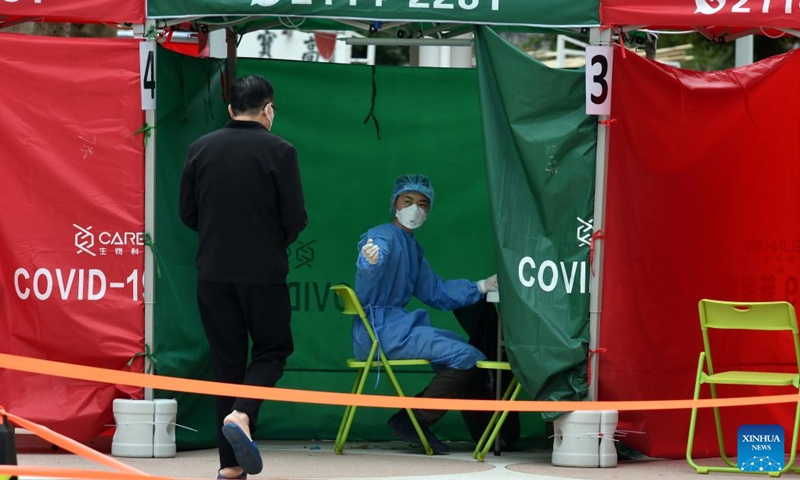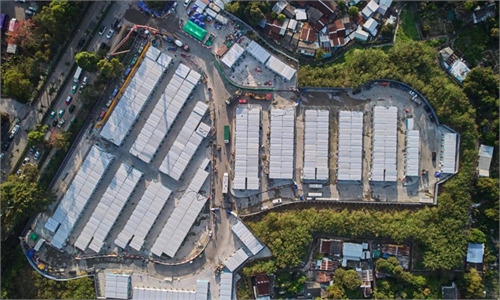
A medical worker guides a citizen at a mobile nucleic acid testing site in Hong Kong, south China, March 16, 2022. (Photo: Xinhua)
Hong Kong will suspend citywide mass nucleic acid testing, cancel flight bans on nine foreign countries, lower the requirements for quarantine of international arrivals, and deliver epidemic prevention kits to residents, according to a series of adjusted measures that the Special Administrative Region government announced on Monday.
Carrie Lam, Chief Executive of the HKSAR government, said at a press conference on Monday that the phased assessment of the anti-epidemic measures introduced on February 20 and originally scheduled to be extended until April 20 was mainly due to changes in the epidemic situation in Hong Kong, as the city has seen stabilized daily cases and a decrease in the transmission of the virus over the past four weeks.
The decision to suspend mass testing was made based on the advice of experts both from the Chinese mainland and Hong Kong, who suggested that it is more appropriate to conduct citywide testing either at the early or late stage of the COVID-19 outbreak, not at the current time when the epidemic in Hong Kong is still at its peak, said Lam.
But she also said that the government would continue to analyze the situation and consider whether to launch mass testing when the time is right.
The current priority of Hong Kong's anti-epidemic work is to reduce the infection rate, the severe case rate and the death rate, and that is where more medical resources should be allocated, Jin Dongyan, a biomedical professor at the University of Hong Kong, told the Global Times on Monday.
Hong Kong will lift the flight ban on nine countries, effective on April 1, including the US, UK, Australia, Canada, France and India.
Overseas Hong Kong residents may quarantine at hotels for as little as seven days if they have completed vaccination and tested negative for COVID-19 after returning to Hong Kong, Carrie Lam said.
Jin said lifting the flight ban ahead of schedule is reasonable as there is less risk of infection from overseas than from the local community in Hong Kong, and opening up to international arrivals is important to maintain the lifeblood of the city's economy.
The HKSAR government will also distribute epidemic prevention kits, including rapid antigen test kits, to households through the end of this month, according to the press conference.
Primary schools, international schools and kindergartens in Hong Kong may resume in-person classes on April 19 after the Easter holidays.
Hong Kong reported 14,068 confirmed COVID-19 cases on Monday, a number below 20,000 for a third consecutive days.
Despite the surging daily cases, the epidemic situation Hong Kong is going toward a "stable" condition in general, said Jin.

